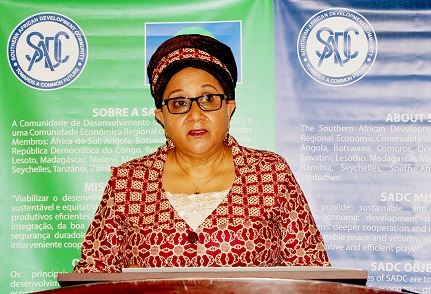11 Jan, 2021
SADC adopts new Labour Migration Action Plan to promote skills transfer and match labour supply and demand for regional integration
The Southern African Development Community (SADC) has adopted a new Labour Migration Action Plan (2020-2025) as part of efforts to promote skills transfer and match labour supply and demand for regional development and integration.
The Action Plan, adopted through the Employment and Labour Sector in the Region, is in line with Article 19 of the SADC Protocol on Employment and Labour, which seeks to protect and safeguard the rights and welfare of migrant workers, to give them better opportunities to contribute to countries of origin and destination.
In her report to the 40th SADC Summit hosted by Mozambique in virtual format last August, SADC Executive Secretary, Her Excellency Dr Stergomena Lawrence Tax, said the Action Plan is an integral part of measures aimed at the progressive elimination of obstacles to the free movement of capital and labour, goods and services, and of the people of the Region generally, in line with Article 5 of the SADC Treaty.
As the 2017 estimates by the African Union show, SADC is host to 37.5% of Africa’s 14.2 million international migrant workers totaling an estimated 5.4 million. At the same time, the Southern African region is home to the largest stock of international migrant workers of up to 4.2 million, ahead of both East Africa and West Africa, with intra-SADC migration accounting for about 45%.
Given this background, it is envisaged that implementation of the adopted policy instrument, through a multi-sectoral approach, will contribute to the protection of labour migrants’ rights and give them an opportunity to make a greater developmental impact on both countries of origin and destination.
The Employment and Labour Sector also adopted the SADC Guidelines on Portability of Social Security Benefits to ensure that workers moving within the SADC region maintain social security rights and benefits acquired under the jurisdiction of different Member States, including pension benefits and occupational injury and diseases benefits.
In her report to the 40th SADC Summit, H.E Dr Tax also said as part of implementation of the 2016 SADC Youth Employment Promotion Policy Framework, the SADC Secretariat and the International Labour Organisation jointly conducted a study of the youth labour markets in the region.
The study showed that SADC has a very youthful labour force by international comparison, and that it will continue to remain so, for the coming decades. In addition, the study showed that the average youth unemployment rate (15-24 years) in 2017 was approximately 12 percent, higher than the 7% average for older persons, thus revealing that youth are more likely to be without a job compared to their older counterparts largely due to lack of work experience.
Despite the relatively low overall unemployment rates for some Member States, there is a high prevalence of informality in employment in SADC, which is typically associated with lack of legal and social protection as well as with lower wages when compared with formal employment.
Adding to these concerns is the high proportion of youth not in employment, education or training (NEET), in excess of 25 percent across several SADC countries and even higher for females. The NEETs represent a special category of youth whose potential for integration in the labour markets is particularly low, as they are simultaneously not gaining experience or new skills.
Dr Tax said while Member States are implementing a number of youth initiatives, these do not always come at significant scale to absorb the majority of unemployed youths. In combination with the youth focused initiatives, Member States should therefore strengthen the integration of pro-employment policies in development and sectoral growth policies, with greater emphasis on demand side interventions.
As a follow up to the SADC youth labour markets analysis, the SADC Secretariat is facilitating the development of interventions to promote active and productive participation by youth in social, economic and political development processes in the region. The Secretariat is also working with the ILO towards a youth employment project to increase the proportion of young men and women in decent employment across the SADC region.
 English
English

